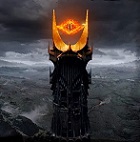There we go, the ahistorical card again. That card usually comes out when all else fails and can be used to explain anything on both sides of the coin. Is this a historical simulation? Or is this a _game_ based on historical force capabilities and starting positions in which both sides have a hand in changing the historical outcome? The latter obvioulsy within historical plausible context.ORIGINAL: Flaviusx
Glvaca, the idea of post blizzard 80+ morale Soviet units clocking in CVs approximating or even exceeding their historical 1944 strengths is palpably absurd. I don't care how good the blizzard offensive was. This kind of result shouldn't be possible at all, and if it is possible, it's a flaw in game mechanics.
You're looking at this from a purely game standpoint; I'm saying it is flatly ahistorical. In its original iteration, morale allowed these kinds of runaways, and it was tamed to prevent that. (I'm not sure if it was tamed enough.)
So, would a guards division have been capable of reaching 80 morale in 1941/42 if the Soviets wouldn't have done what they did? That is the question that needs answering, not whether it actually happened. You just say it didn't happen so it shouldn't be possible in the game. Yet, at the same stroke, you defend the runaway strategy and the use of ants to soak movementpoints, the checkerboard and a score of other ahistorical things that you find good play. And you continue by calling the German runaway during winter gamey and ahistorical. To finish with the March comeback as ahistorical in the extreme.
Your arguement is thin. The *reality* is that once this games starts it departs history as it should. It should focus on keeping things within historical plausibility, not on scripting the game to conform to histrorical reality. And the latter very arbitrary too. Which criteria are used to keep things locked to history and which are to be given a free hand? Which are for the player to decide and which does the game mechanics force upon you? The one thing the Germans have going for them is quality, scripting the decline of quality is simply wrong in a game like this and shouldn't be necessary. It should be the natural evolution of the game, and the main challenge for the German should be to keep that qualitative edge through good play, not by all but preventing him to keep that qualatitive edge. Which, by the way, is quite historical too! However, the current situation is that the Germans are prevented from keeping that edge, while the Soviets CAN imporve their morale state substentially above and beyond what would be historical correct, provided they play well.
Not to speak of many other hardcore games that DO rate Guards divisions almost on par with the German infantry. So I would say, a couple of Guards with 80 (and I doubt you'll be able to do this against a skilled German player) would be no problem for me, at all. IF you can do, great for you!
Besides, I see no reason to make it virutally impossible for the German to get his infantry/Panzers to 86+ in 42 and beyond, because it is deemed ahistorical for Guards units.
Lastly, after months and months of testing the first installment of the game DID allow for units to rise substantially in morale above 86+. I repeat, months of months of testing. How was it missed if it is such a game breaker? How was the effect of high morale missed if it is so ahistorical now? Was it a mistake? Was it overlooked? Please, I'd love to hear your thoughts on this.




